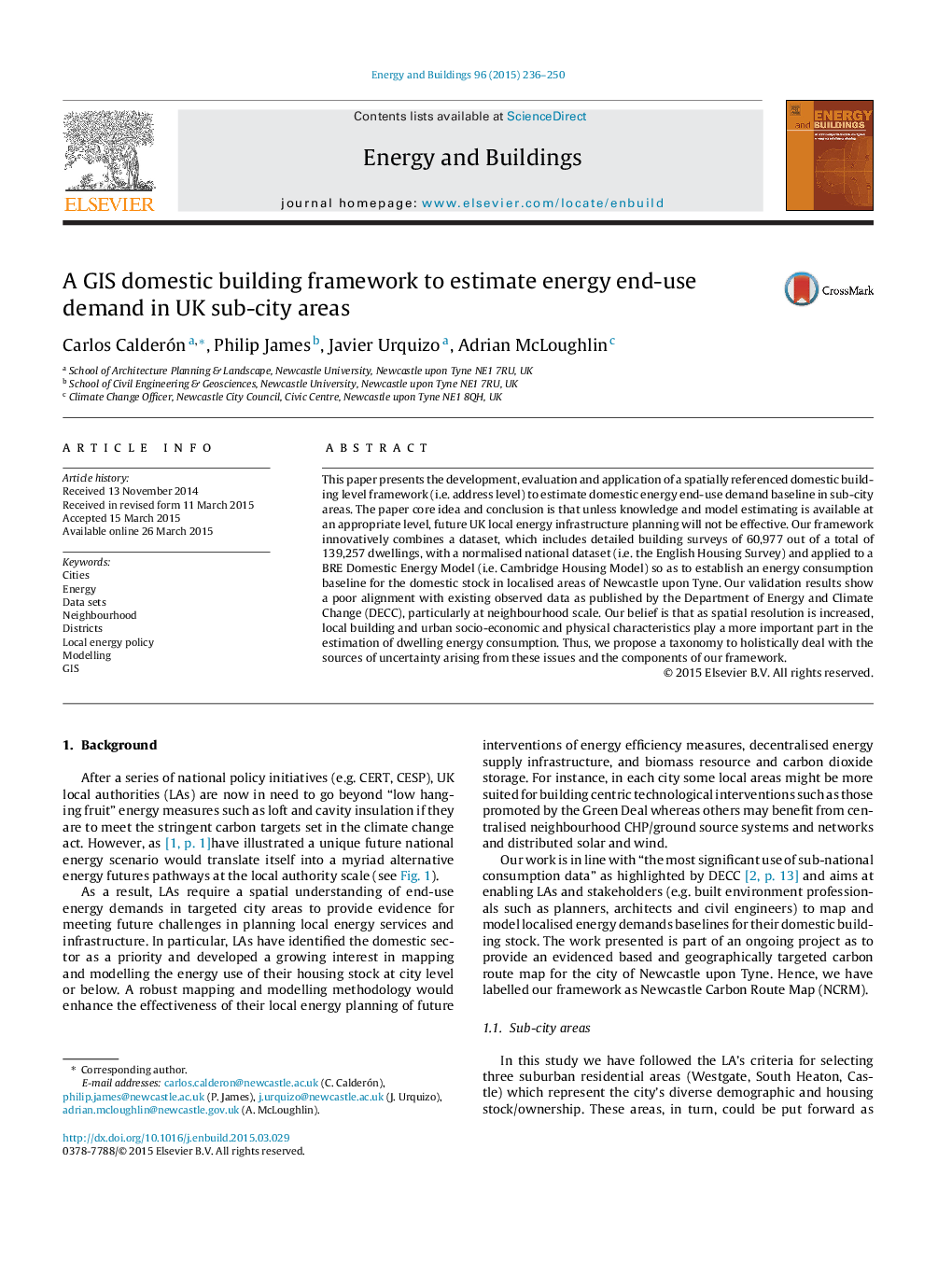| Article ID | Journal | Published Year | Pages | File Type |
|---|---|---|---|---|
| 6731534 | Energy and Buildings | 2015 | 15 Pages |
Abstract
This paper presents the development, evaluation and application of a spatially referenced domestic building level framework (i.e. address level) to estimate domestic energy end-use demand baseline in sub-city areas. The paper core idea and conclusion is that unless knowledge and model estimating is available at an appropriate level, future UK local energy infrastructure planning will not be effective. Our framework innovatively combines a dataset, which includes detailed building surveys of 60,977 out of a total of 139,257 dwellings, with a normalised national dataset (i.e. the English Housing Survey) and applied to a BRE Domestic Energy Model (i.e. Cambridge Housing Model) so as to establish an energy consumption baseline for the domestic stock in localised areas of Newcastle upon Tyne. Our validation results show a poor alignment with existing observed data as published by the Department of Energy and Climate Change (DECC), particularly at neighbourhood scale. Our belief is that as spatial resolution is increased, local building and urban socio-economic and physical characteristics play a more important part in the estimation of dwelling energy consumption. Thus, we propose a taxonomy to holistically deal with the sources of uncertainty arising from these issues and the components of our framework.
Related Topics
Physical Sciences and Engineering
Energy
Renewable Energy, Sustainability and the Environment
Authors
Carlos Calderón, Philip James, Javier Urquizo, Adrian McLoughlin,
